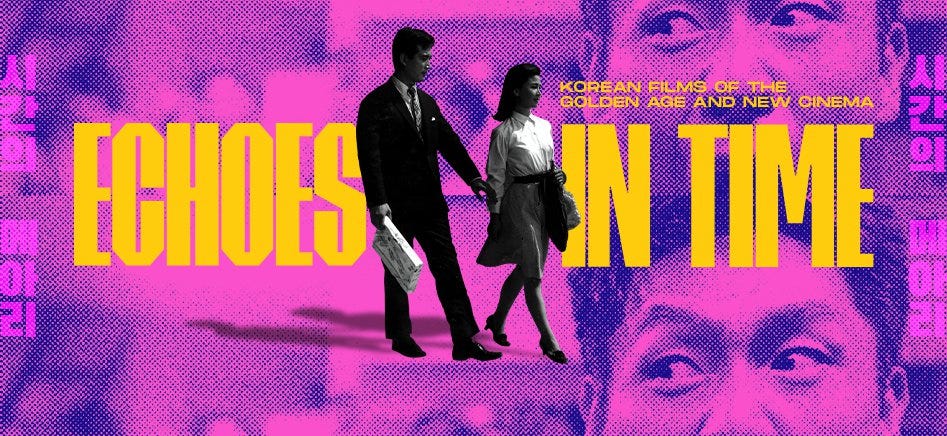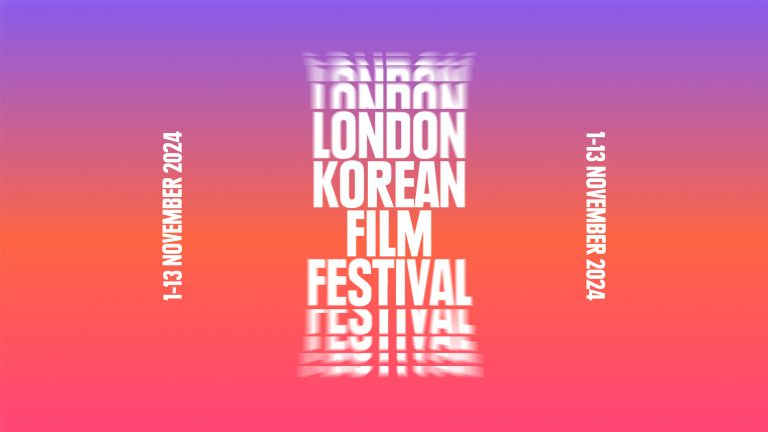No theatre talk today, but the first in an occasional series of cultural flashbacks. A look back at a period late last year when London hosted three Korean film festivals concurrently - and how I coped.
I am very lucky – I live in London and work on the South Bank. Within a gentle walk of my office, I can access the British homes of both film and theatre without turning more than two corners. I am tripping over culture on a daily basis and could not be happier. Today, I am going to reminisce about the two months at the end of last year when London over-delivered on that culture and hosted entirely too many Korean film festivals.
My interest in Korean cinema began in late 2016 when I was writing a film blog (ahem) and was invited to the London Korean Film Festival (LKFF). That year, I watched the Korean thriller The Truth Beneath and was fully swept up in the Korean Wave (aka Hallyu). From then on, a visit to LKFF was an annual tradition, and my link to the London Korean Cultural Centre (LKCC) peaked with a very stressful year attending weekly Korean for Beginners classes. Turns out I do not have an aptitude for languages, but I do have an aptitude for sitting in dark rooms and reading subtitles.
Jump forward to 2024, and a strange confluence of events was unfolding. From October 25th, the Institute of Contemporary Arts (ICA) – not on the South Bank, but still within my walkable cultural perimeter – was hosting a retrospective of Hong Sang-soo’s entire filmography. For the uninitiated, Hong is a Korean director with a very distinctive style and an obsessive cult following, whose films vary from the sublime to the deliberately unwatchable.
Meanwhile…
At the BFI, it was announced that they would be running, from October 28th, a season entitled Echoes in Time: Korean Films of the Golden Age and New Cinema. A title I think you can unpack for yourselves.
Meanwhile…
My old friends at the LKCC announced that the 2024 edition of the LKFF would be primarily hosted at the BFI and would start on November 1st. To confuse things even more, the opening night of LKFF would be five days into the festival.
To help you understand this nesting doll of Korean film festivals, I present to you a hastily made visualisation:
How’s your day going? I just made a Gantt chart of Korean film seasons.
For the first time, I was actually having to choose which film festival to attend on any given day. On one confusing Saturday, I attended two different festivals – both at the BFI – after a matinee performance at Sadler's Wells. We can debate whether this is a sustainable way to spend my weekends in another newsletter, but the feeling of rushing around London from show to show, film to film, reminds me why I moved here in the first place.
All in all, I had a wonderful few months. I got to revisit a favourite director, fill in some gaps in my film knowledge, see the latest releases, and introduce friends to some classics. Why all three film seasons happened simultaneously, and whether it will ever happen again, remains a mystery.
A few highlights from the various seasons:
Oki’s Movie (2010) - Best Hong Sang-soo
I only managed to see a handful of the ICA’s Hong Sang-soo retrospective but was there for the opening night screening of Oki’s Movie. As mentioned above, Hong has a cult following, but his films aren’t always the most accessible – both in terms of their extremely limited releases and the fact that Hong tends to swap aesthetics and dramatics for a naturalistic look and feel that can take a moment to get used to. One of his films is deliberately out of focus, and that’s a step too far for me.
I would argue that Oki’s Movie is one of Hong’s most accessible, and definitely one of his best films. As is often the case with Hong, the plot follows the troubled romances of a film-maker, with patterns of behaviour repeating and a tricksy narrative unfolding out of order. Hong has a wry sense of humour that doesn’t telegraph the jokes but makes you earn each laugh. There is a lot to love in Oki’s Movie, and it is as romantic as it is cynical.
Oki’s Movie lets you decide precisely what has happened, and in what order the scenes take place, but this is not a puzzle to solve. More, a vibe to give into and enjoy. Oki’s Movie is a charming, sleepy, funny mess and features the late, great, Lee Sun-kyun in a brilliantly unflattering secondary role. The joy is in the flawed characters and the mistakes they make.
You’ll have to borrow my DVD if you want to see it, sadly, as not even Mubi is streaming this one right now.
Love in the Big City (2024) - Best New Release
The closest to what you might expect from a Netflix K-drama, Love in the Big City is a bright and glossy comedy-drama starring K-drama royalty Kim Go-eun and relative unknown Noh Sang-hyun.
While tame - or perhaps a bit regressive - by European norms, Love in the Big City could actually be seen as progressive by light mainstream Korean film standards. Not only is the male lead gay, but the female lead gets drunk, has sex, and has flaws. The fact that Noh Sang-hyun is a Korean-American actor hints at the difficulty of convincing a young Korean star to play an openly gay role in a high-profile film.
The film veers all over the place narratively as numerous topics are rolled into the plot. The central friendship holds the leads, and the film, together and game performances kept me from overanalysing things. Two charismatic leads and a few meme-able moments are more than enough for a successful aromantic romantic comedy.
Plus, I got a free plastic folder at the screening – at last, my BFI film notes can be stored neatly.
Also not available to stream legally anywhere, sadly.
Take Care of My Cat (2001) - Best Classic
Completely unknown to me, Take Care of My Cat was a really pleasant/devastating surprise. Following five young women as they leave high school, grow up, and grow apart, this is a real ensemble effort that festered in my mind for days.
I’ll avoid recapping the plot, but the five leads experience all the highs and lows of adult life – littered with trivial complaints and tragedy alike. What the film really captured was the strain that growing up can have on friendships and the difficulty of maintaining those relationships when you’ve all changed and moved on at different paces.
The biggest endorsement I can give this film is the way it lingered in my mind for days after leaving the BFI. In fact, immediately after leaving the screening, I opted to head straight home and skip the normal post-cinema debrief. This is the sort of film that lets you relate to characters from decades in the past, in a city 5,000 miles away, as if you went to school with them.
One character’s lament at being the one holding all their friendships together is so painfully relatable from both sides. I’m not sure I’ll ever quite shake it. What I thought would be a fun and breezy film completely blindsided me.
And how can you easily see this turn-of-the-millennium treat? To the DVD section!
Oldboy (2003) - Most Iconic
The final film of this Hallyu marathon for me was Oldboy, arguably the only Korean film to exist in the Western consciousness before Parasite convinced the world to dig a little deeper.
Oldboy remains as iconic as it ever was. Beautifully crafted but often stomach-churning, completely enthralling and deeply ridiculous.
It was a particular treat to watch this with a friend who did not see that twist coming. The audible exclamation I heard to my left as the plot unravelled was a festival highlight. Director Park Chan-wook knows exactly what he’s doing and doles out information at exactly the right moments, at precisely the right pace.
You don’t need me to tell you to watch Oldboy, and this is the one film you might actually be able to stream.














Everyone loves a gantt